Fedora Women’s Day (FWD) is a day to celebrate and bring visibility to female contributors in open source projects, including Fedora. This event is headed by Fedora’s Diversity and Inclusion Team.
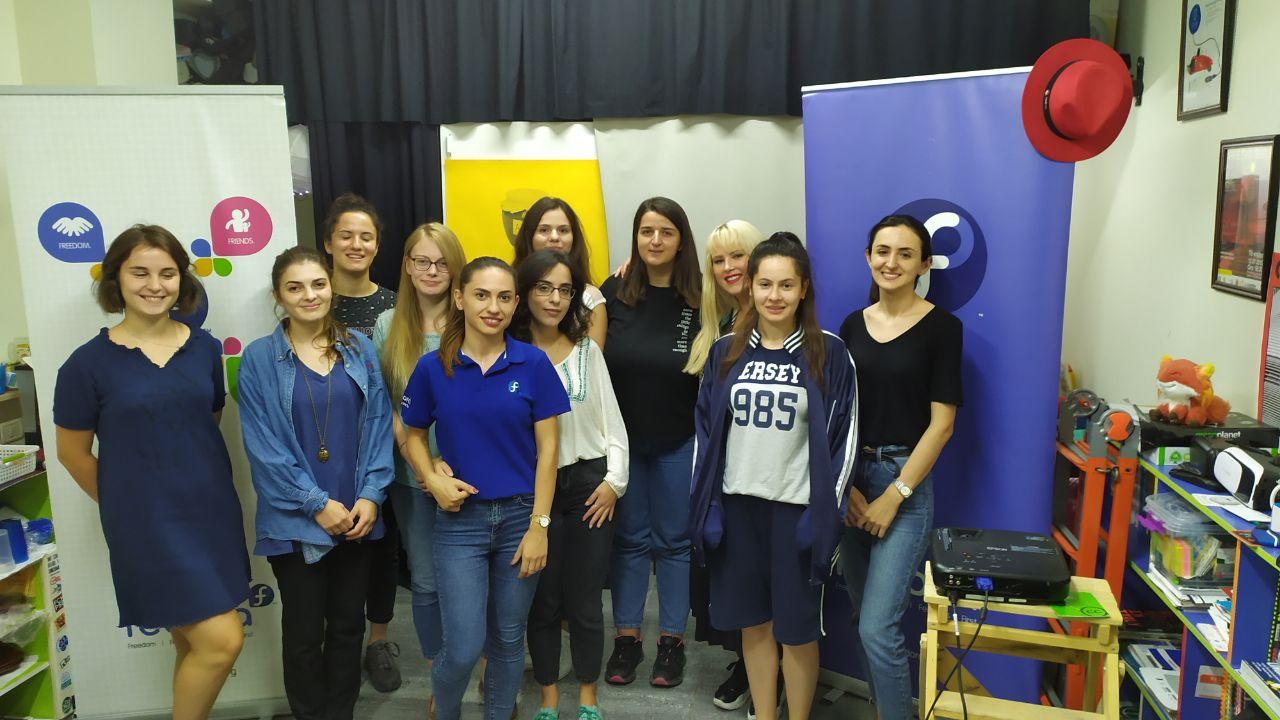 Group picture during Fedora Women’s Day 2019 - Tirana
Group picture during Fedora Women’s Day 2019 - Tirana
I attended FWD for the very first time back in 2017 right a month after I was recognized as an EMEA Ambassador. Two years later, it was time to organize an other FWD in my city and highlight how important it is to have women that are part of the Open Source ecosystem in general and The Fedora Project in particular.
Preparation
A few months ago while I was attending university classes I met with Juela Ismailaga, a young girl who was pursuing the same Master’s program as myself. In June I talked to her about my involvement with the Fedora Project and the fact that was planning to organize FWD in September and she volunteered to help with the preparations. Indeed, Juela announced our event on the local Open Source community’s online forum and we began our preparations. Our preparations mainly included promoting the event both online and offline, draft a schedule (event small events need an agenda) and prepare the physical space a day before our event.
Who joined
Other than the “usual suspects” we were happy to see new faces on our event. We had a few girls that joined us who were students from a professional high school and had quite some knowledge about Computer Science. We had Jana, a teen from Saarbrücken, Germany who had a lot of experience with the Open Source ecosystem as she attended several events back in her home town. Additionally, Mirja joined us from Sweden. Mirja was a journalist that was focused in issues women face in nowadays and interviewed most of the girls after the event. Once I have the link to her blogpost I will link it here.
Full story
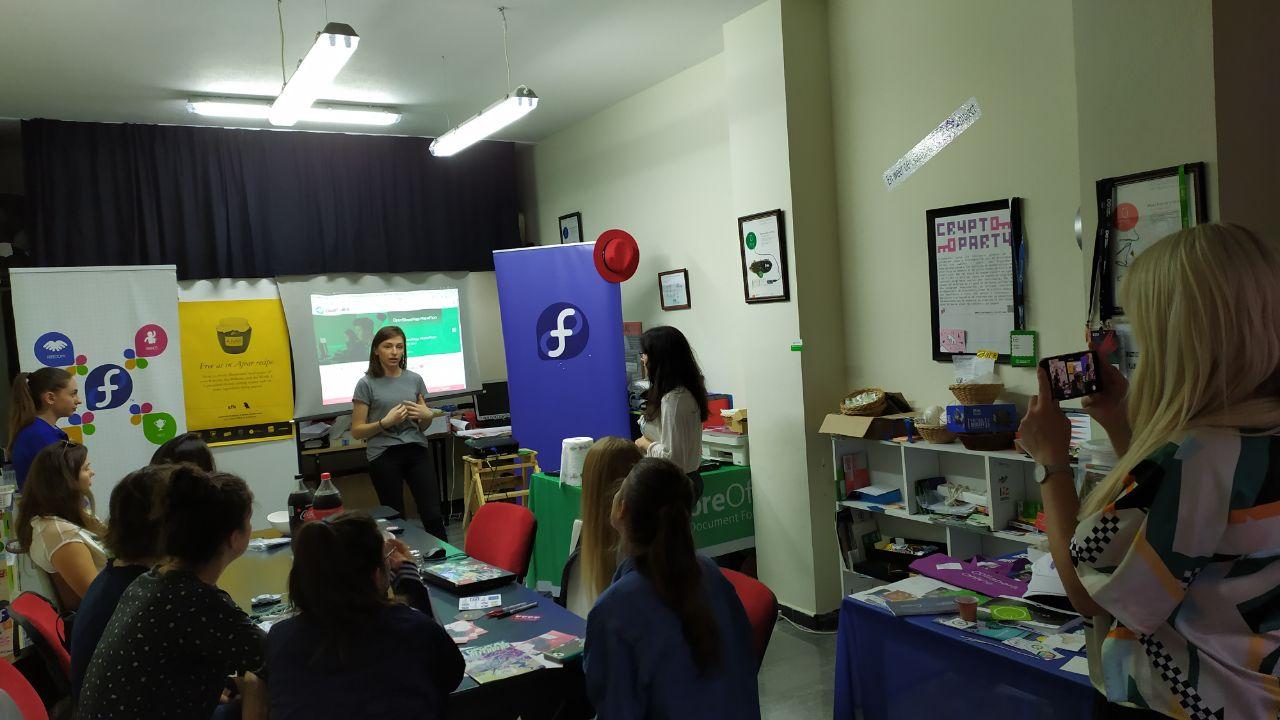 Sidorela introducing Open Labs Hackerspace
Sidorela introducing Open Labs Hackerspace
Our event started with a presentation about Open Labs Hackerspace, the community that fosters most Open Source events happening in Tirana by Sidorela Uku one of the members. Then, I presented the first session. I talked to the attendees about the Fedora community, the Fedora distribution and explained what the D&I team is. One of my favorite parts was when we mentioned the Happiness Packets as this is a project fits perfectly the nature of Fedora Women Day.
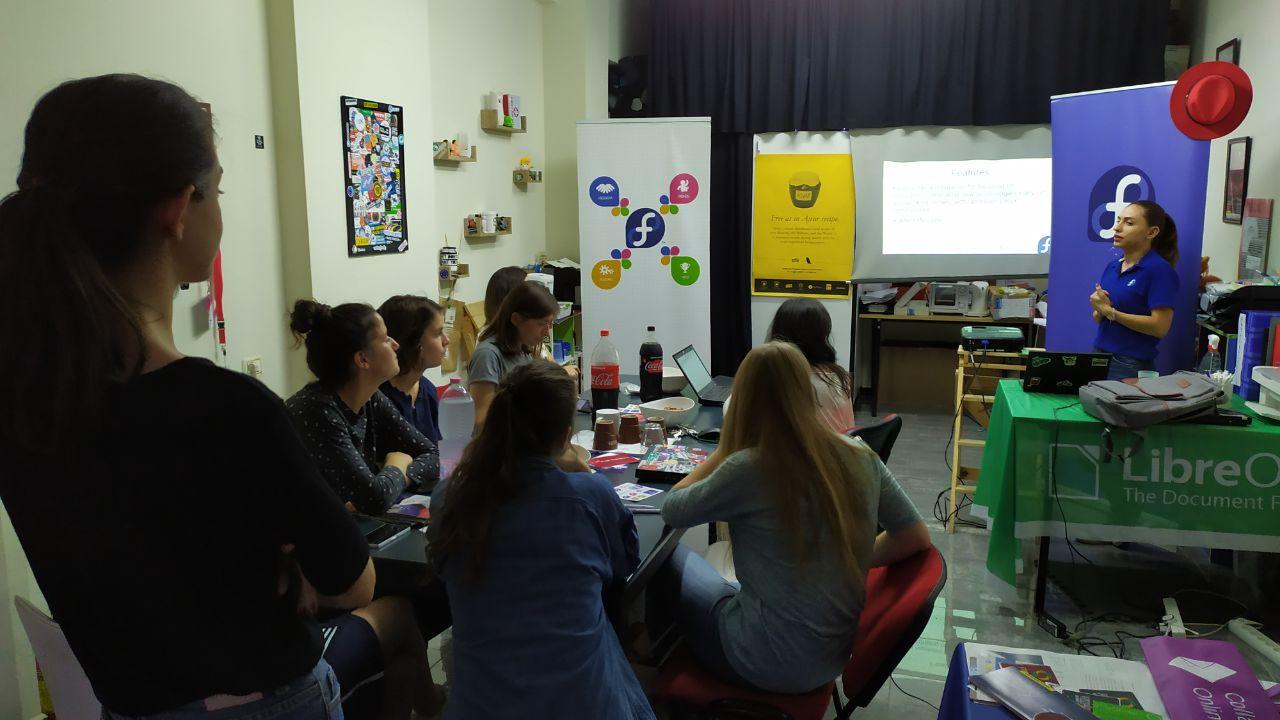 Introducing the Fedora Project
Introducing the Fedora Project
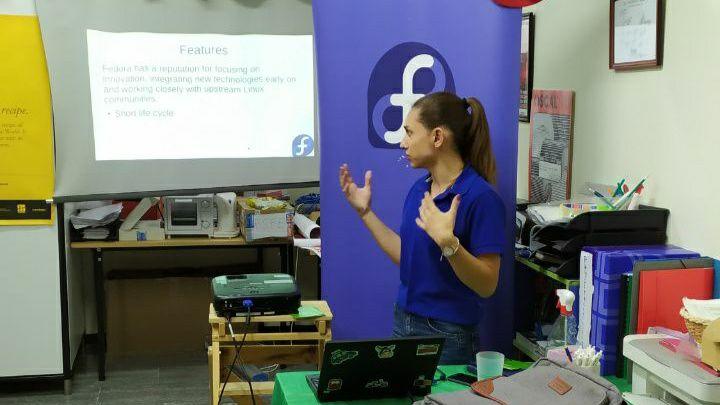 Introducing the Fedora Project
Introducing the Fedora Project
The second part was presented by Juela. She presented the “A Computer of One’s Own – Pioneers of the Computing Age” collection. This is a collection with ladies who have achieved a lot in the field of computer science worldwide starting from the 20th century until today. This collection includes names like: Ada Lovelace, Grace Hoper, Audrey Tang, Lorie Spiegel, Veronica Dahl and many other women who have made our lives easier with their work. Although this was not 100% related to the Fedora Project we included it on the FWD agenda because we saw value in presenting to our attendees that some of the greatest things that we have today were created by women even if no one believed in their potential.
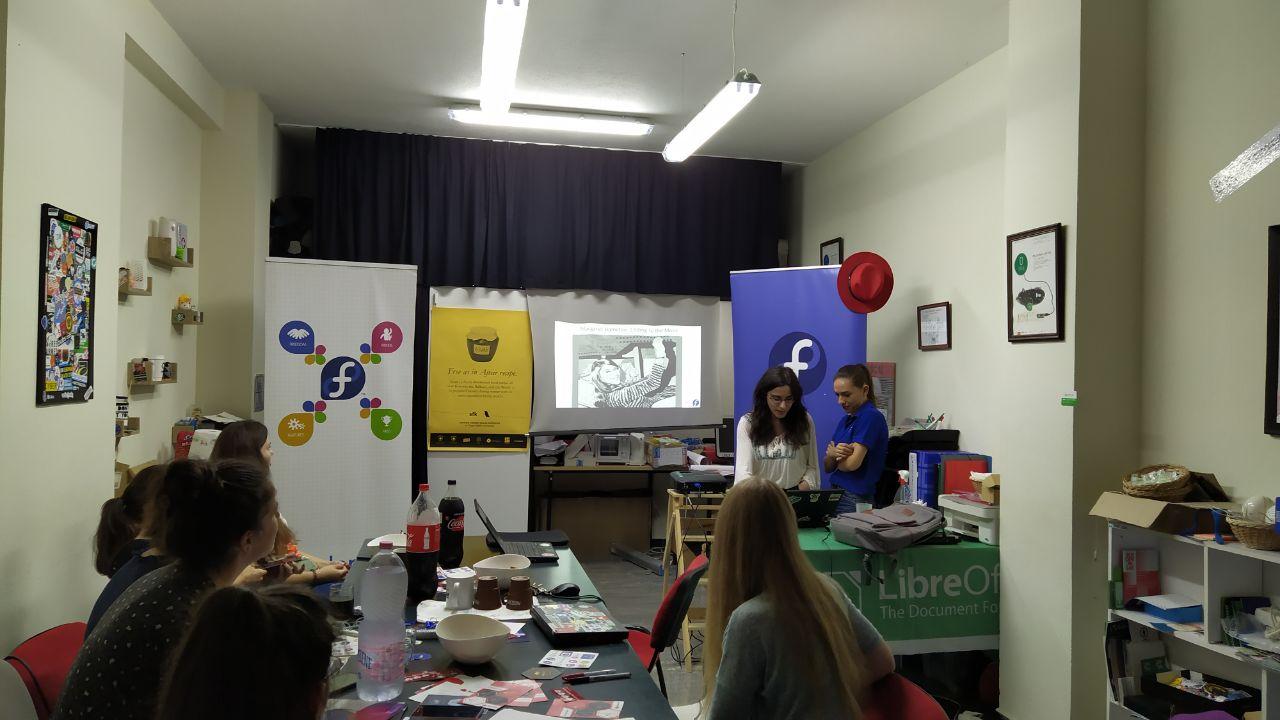 Introducing the “A Computer of One’s Own – Pioneers of the Computing Age” collection
Introducing the “A Computer of One’s Own – Pioneers of the Computing Age” collection
 Introducing the “A Computer of One’s Own – Pioneers of the Computing Age” collection
Introducing the “A Computer of One’s Own – Pioneers of the Computing Age” collection
Before the third part of our event we had a short 15 minutes break for snacks and drinks. During the third part, Nafie Shehu browsed whatcanidoforfedora.org and explained that contributions don’t have to be necessarily code contributions but there are several other areas we can focus depending on our level of expertise, skills and of course preferences.
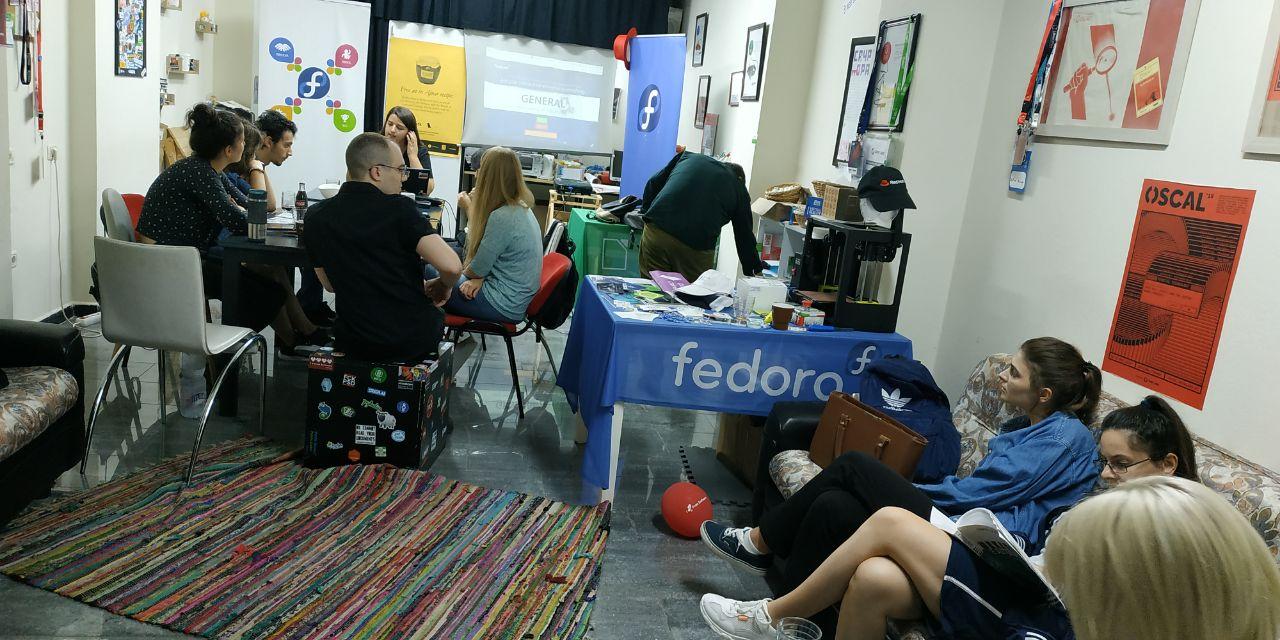 Introducing whatcanidoforfedora.org
Introducing whatcanidoforfedora.org
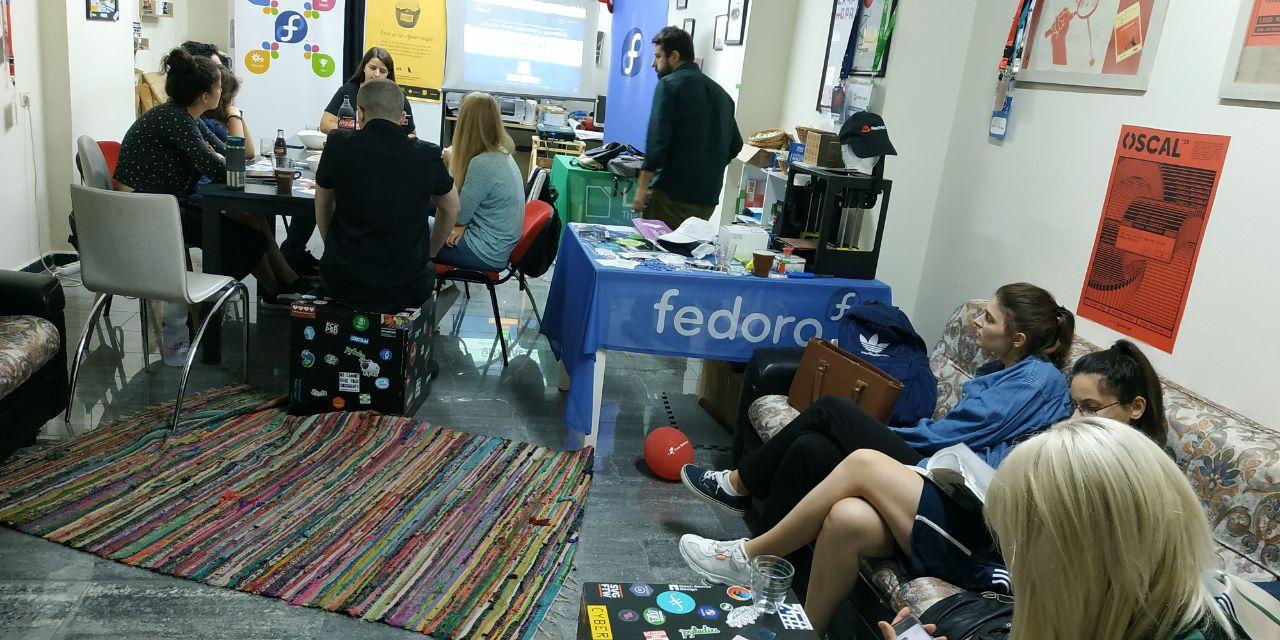 Talking about QA
Talking about QA
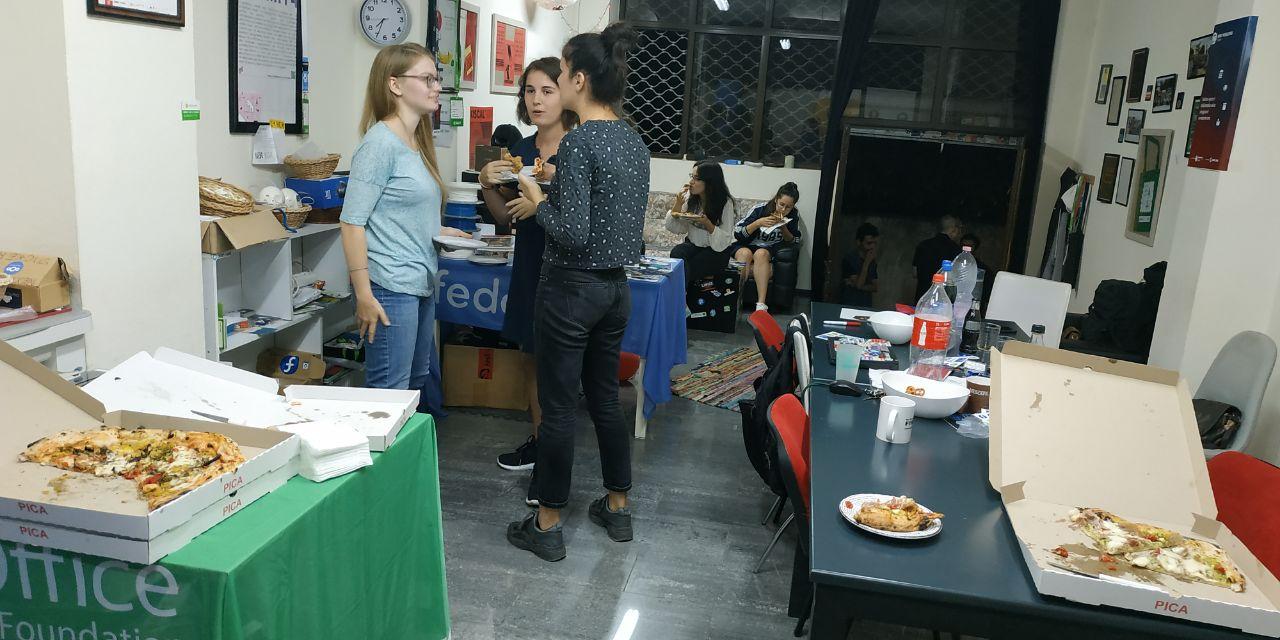 Pizza time! 🍕
Pizza time! 🍕
The aftermath
While we were presenting whatcanidoforfedora.org we stopped on the “QA and Testing” tab and explained further what QA is and the importance of testing before the final release. During at that time Fedora 31 Beta was out so it was the perfect timing to talk about QA. Most of the girls attending were either high school students or were about to start university in CS. We agreed to gather on more time before the end of October or early November and have a QA session lead by Nafie and Suela Palushi (they both work as QA engineers) and learn how to conduct testing and how to hunt bugs. This is not directly related to F31 final release, but more of having a QA session and learn what are the most important steps during software testing and how to report bugs properly.
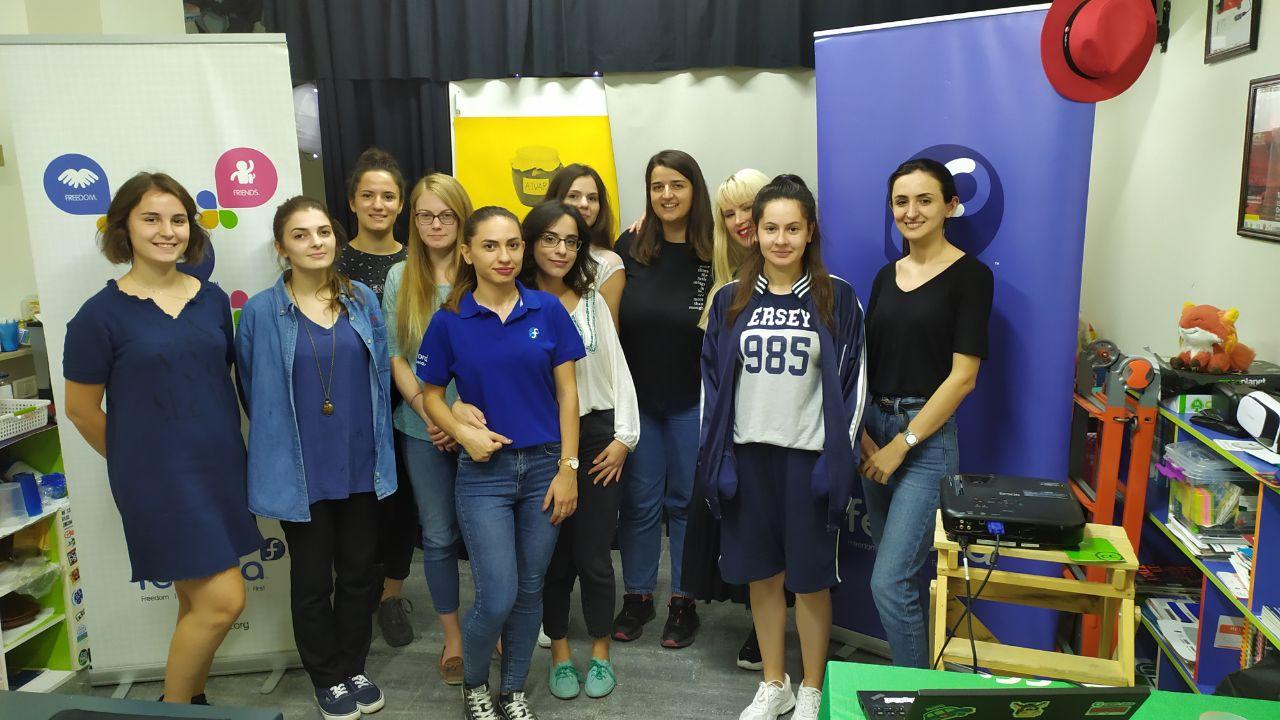 Group picture during Fedora Women’s Day 2019 - Tirana
Group picture during Fedora Women’s Day 2019 - Tirana